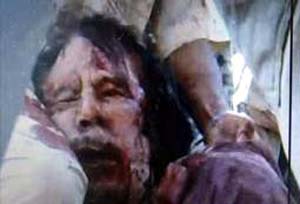The fallacy of democracy
puts into question the exercise of democracy. When citizens of these countries pour into the streets to demonstrate against the policies of their governments or turning against the financial sector as the cause of their poverty and unemployment, this could mean a failure of democracy. Then comes a small developing country such as Zimbabwe, with a policy of economic empowerment.
Surely, the exercise of democracy cannot be equated by destroying the fabric of society by going on strike and refusing the reality of the country’s indebtedness.
Is the accumulation of debt a sign of democracy? Can western countries that have been living beyond their means have a claim to democracy?
Many people are left to wonder whether voting for a change of government will solve the economic crisis. In the USA, there was a change of government two years ago but the unemployment and poverty situation has even become worse. In Greece, a conservative government lost power two years ago to the socialists, but the situation in that country has gone from bad to worse. Is this the reward for democracy for those who voted in the new government?
But countries that are criticised for lack of democracy, such as China, Saudi Arabia, etc, have adopted a policy of economically empowering their people. They provide free education, free health services and guarantee an income to their citizens. Yes, there may be no direct voting for the government but the welfare of their citizens is taken care of.
The coming up of economic empowerment policies could be the best way to implement democracy.
Citizens want economic well-being. That is the right to decent life. Yes, a developing country has to put its priorities right. Surely, it is not the speeches made in Parliament that will feed the nation or guarantee its citizens a decent life. People do not go to vote for promises only but for polices that will empower them to live an economically viable life.
How then can the people exercise their democracy?
Democracy is not just to go to the polls but tangible democracy that allows them to exercise the right to use their natural resources for their benefit. The first exercise for democracy came with the land redistribution. Some may say whatever they want but the ordinary person clearly saw the resettlement program as an exercise of their right to land and with it their democratic rights restored.
Another exercise of democracy is in the economic field where the right to own the country’s resources is being implemented. Take the question of community trusts which are being set up. If these trusts can be used
to develop the economic welfare of the communities, this would be a major implementation of the democratic rights of the people.
What is being seen in Zimbabwe is the drive to empower people to exercise their democratic right to engage in any business of their choice. Some may opt to run flea markets, selling second hand clothes while others may engage in small-scale industries. Still many others are in the transport sector where they run their kombis and buses.
The traffic on our roads is a testimony to the policy of allowing people to exercise their democratic right to own whatever state of any car of their choice. It could be a four-wheeler landcruiser, a Benz or any secondhand imported vehicle. The people are exercising their democratic right in an independent country.
What may be of concern in this democratic environment is whether government institutions are being strengthened to sustain these democratic rights of the people. The most important institution is that of the Ministry of Finance. Are the taxes people pay being put to better use to serve the economic rights of the people?
Many governments are in trouble because of misusing the revenue collected from tax payers not being utilised for the purpose it was collected for. What comes to mind are the better remuneration of civil servants, support for agriculture production, education etc.
There are areas where revenue utilisation may not meet the aspirations of the people, such as, monies paid to local authorities by residents to improve sanitation and water. These are democratic rights which must be implemented by local authorities.
Other institutions include the judiciary and the security sector which are important to safeguard and to guarantee the democratic rights of the people, to live in peace. But, the citizens are willing to pay their taxes and to make their contributions for the developing of their country if all these safeguards are guaranteed.
A group of parents whose children go to one government school, decided to levy each parent so they could pay the teachers of their school incentives. They saw this as their democratic right to pay the teachers for the education of their children.
Their argument was that some top government officials and politicians send their children to private schools where they pay a fortune for the education of their children. It was their right to see to it that the teachers of their children were well catered for. It was their democratic right to ensure that their children had a better education.
How they decided to use their money was their democratic right. To them, it was an exercise of democracy in an independent Zimbabwe. Therefore, economic emancipation is the implementation of democracy.











Comments